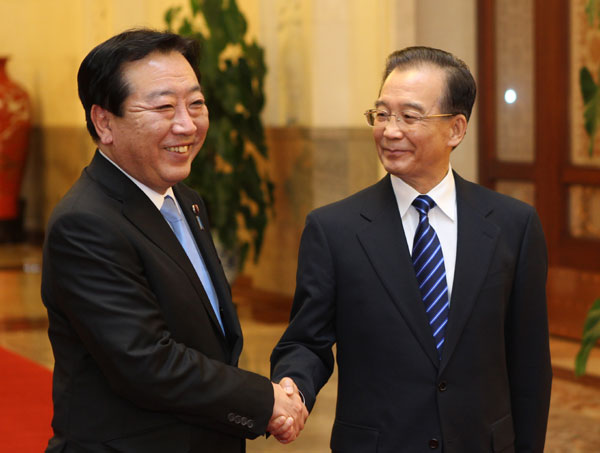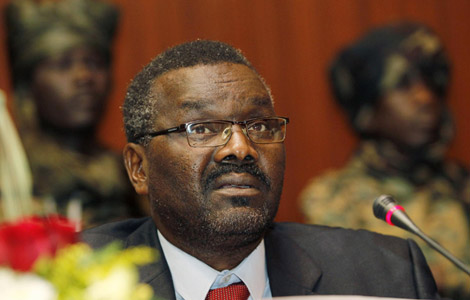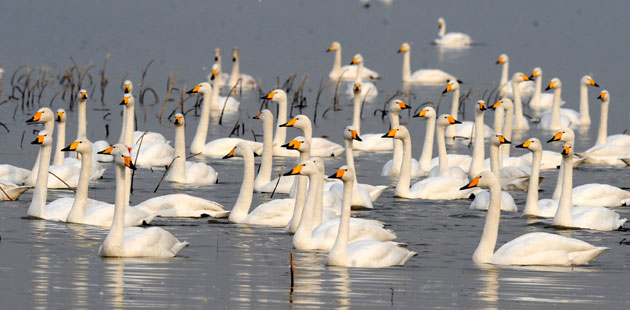Peninsula, finance top Wen-Noda talks
Updated: 2011-12-26 07:14
By Li Xiaokun and Zhang Yunbi (China Daily)
|
|||||||||||
Wen, Noda cite common interests as Japan looks to buy yuan bonds
BEIJING - A stable Korean Peninsula is in the interests of both China and Japan, prime ministers of both countries said on Sunday, amid signs of political and financial cooperation as Japan seeks to buy Chinese government bonds.
|
 |
|
Premier Wen Jiabao welcomes Japanese Prime Minister Yoshihiko Noda in Beijing on Sunday. Wu Zhiyi / China Daily |
The determination expressed by the two leaders on the peninsula issue is "an achievement" as the death of the Democratic People's Republic of Korea (DPRK) leader Kim Jong-il created uncertainty in Northeast Asia, experts said.
Premier Wen Jiabao and his Japanese counterpart Yoshihiko Noda made the call for stability during talks at the Great Hall of the People.
Noda kicked off his overnight China visit on Sunday noon, making him the first foreign leader to visit China after Kim's death was announced on Dec 19. This is also Noda's first official visit to China since he came to power in September.
"Kim Jong-il passed away, so we are currently facing a new situation in East Asia," Noda told Wen at the start of the talks.
Japanese media said Kim's death had shifted Noda's focus from various disputes in relations with China, including territorial disputes in the East China Sea, to the situation in the DPRK.
"Both sides believe maintaining peace and stability on the Korean Peninsula is in line with the common interests of all relevant parties," the Ministry of Foreign Affairs said in a press release after the meeting.
The statement said Beijing and Tokyo hope relevant parties will continue efforts for an early restart of the Six-Party Talks.
The talks, which also involve the DPRK, the Republic of Korea (ROK), the US and Russia, focused on Pyongyang's nuclear program. The DPRK pulled out of the talks in 2009.
Liu Jiangyong, an expert on Japan studies at Tsinghua University, said Japanese leaders rarely travel in times of major international events, like the demise of Kim.
Hot Topics
HIV/AIDS, Egypt protest, Thanksgiving, climate change, global economic recovery, home prices, high-speed railways, school bus safety, Libya situation, Weekly photos
Editor's Picks

|

|

|

|

|

|







